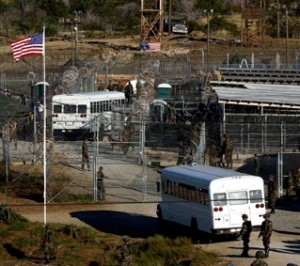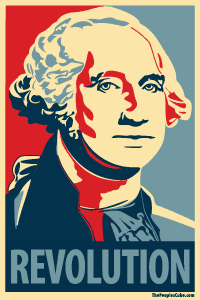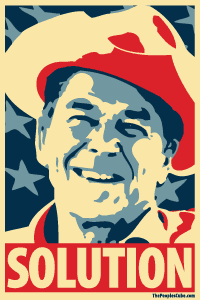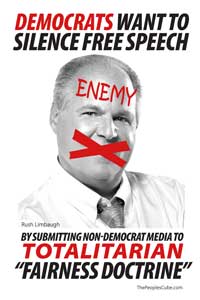The Democrat Race Lie
June 16, 2012 by 1 Comment
By Bob Parks | June 16, 2012 | Black and Right
This whopper deserves all the attention it can get. Again, it shows the ignorance and contempt of the electorate liberals depend on.
In 2010, Democrats gave their website a facelift and whitewash. Click on the screenshot above to see what they used to say about their civil rights history compared to now. [Read more…]
Black Teen Run Off the Liberal Plantation
May 2, 2012 by Leave a Comment
By Matthew May | May 2, 2012 | American Thinker
Do you know the name Jada Williams?
You probably know the name Sandra Fluke. She received a phone call from the incumbent president after the mean old white man on the radio called her a name. You probably know the name Trayvon Martin. The incumbent president answered a planted question from a White House reporter to indicate that Trayvon, slain by an individual representing the heretofore unknown demographic of white Hispanic, looked like he could be the president’s son.
Jada Williams is a 13-year-old student from Rochester, New York. Earlier this school year, she was given a copy of the book The Narrative of the Life of Frederick Douglass, An American Slave, written by the great patriot Frederick Douglass. Her assignment was to read the book and write an essay about her impressions. Her essay was to be entered in a contest. Jada Williams happens to be black. Many of her teachers are white.
Reading Douglass can — and should — incite rage and astonishment at the depths to which barbaric slaveowners and their deputies sank in treating their fellow men. The violence perpetrated upon Douglass and other slaves by the protected class of overseers is relayed in stark detail — to wit, an anecdote about an overseer named Mr. Gore:
Mr. Gore once undertook to whip one of Colonel Lloyd’s slaves, by the name of Demby. He had given Demby but few stripes, when, to get rid of the scourging, he ran and plunged himself into a creek, and stood there at the depth of his shoulders, refusing to come out. Mr. Gore told him that he would give him three calls, and that, if he did not come out at the third call, he would shoot him. The first call was given. Demby made no response but stood his ground. The second and third calls were given with the same result. Mr. Gore then, without consultation or deliberation with any one, not even giving Demby an additional call, raised his musket to his face, taking deadly aim at his standing victim, and in an instant poor Demby was no more…He (Gore) was asked by Colonel Lloyd and my old master, why he resorted to this extraordinary expedient. His reply was, (as well as I can remember,) that Demby had become unmanageable.
Ms. Williams struggled with the initial part of the assignment. She found it difficult to encounter some of the vocabulary used by Douglass. Exasperated at being unprepared to confront the text, she sought definition to that which she did not comprehend. Once she became satisfied that she grasped Douglass’s use of the language, she understood what Douglass was describing. She was struck by comparisons between her life and Douglass’s characterizations of the plantation overseers and masters and mistresses who denied him knowledge for fear of his becoming aware of his humanity.
In her essay, Ms. Williams drew a parallel between what she saw as a group of self-satisfied “white teachers” overseeing dysfunctional students (characterized by Ms. Williams as “so-called ‘unteachable'” students) who were not being properly taught, illiterate and perpetually ignorant. This she considers a form of slavery. Ms. Williams quoted an arresting passage from Douglass’s description of one of his masters, a Mr. Auld, happening upon his wife instructing Douglass in basic reading:
If you teach that nigger (speaking of myself) how to read, there will be no keeping him. It will forever unfit him to be a slave. He would at once become unmanageable, and of no value to his master.
One wonders if the copy of Douglass’s book read by Ms. Williams included, as do some editions, a letter written to Douglass by Massachusetts abolitionist Wendell Phillips. Phillips surmised that Douglass’s experiences as a slave amounted to “[t]he cruel and blighting death that gather over his soul.” An oft-quoted phrase about writers or by writers is that “writers write what they know.” So Ms. Williams wrote.
Perhaps Ms. Williams’s use of the phrase “white teachers” was provocative. Yet this is her reality. Her plea was not that her teachers should be fired or punished in any way. Her plea was conciliatory and did not limit blame for what she sees as an intolerable situation to them alone. She asked that her teachers — and her fellow students — work in concert to spread knowledge and prepare their students and themselves in such a way so as to be able to engage a mind like Frederick Douglass without frustration:
A grand price was paid in order for us to be where we are today; but in my mind we should be a lot further, so again I encourage the white teachers to instruct and I encourage my people not to just be a student, but become a learner.
The essay that Ms. Williams wrote was never entered in the essay contest. Instead, she was harassed out of her school by the very people whose assistance she requested.
Read the full article here.
Related Articles
- Jada Williams returns to GBTV, discusses freedom of speech (glennbeck.com)
- 13-year-old student’s slavery analogy allegedly sparks harassment (thegrio.com)
- 13-year-old girl forced to leave school over Frederick Douglass essay (haleybehre.wordpress.com)
- A modern abolitionist remembers a famous ancestor (northcountrypublicradio.org)
- Knowledge is the Pathway from Slavery to Freedom (americanclarion.com)
- History a the wish fulfillment of abolitionists. (sesquicentenary.wordpress.com)
- City school district apologizes to teen who claims she was harassed for her essay (classroomconscious.wordpress.com)
- All Blocks: Douglass work DUE TUESDAY!! Essay due Monday! (weheartenglish.wordpress.com)
- John Brown Day (essexonlakechamplain.com)
How Obama’s Enablers Mislead the Public on the Meaning of an Article II “Natural Born” Citizen
April 28, 2012 by 7 Comments
By Mario Apuzzo, Esq. | October 10, 2011 | Natural Born Citizen
 You have got to love Obama’s enablers. They have a web site called, “A Place to Get the REALLY Right Answers About Natural Born Citizenship,” accessed at http://birtherthinktank.wordpress.com/a-place-to-get-the-really-right-answers-about-natural-born-citizenship/. Clearly, the title of this web site refers this web site, “Natural Born Citizen – A Place to Ask Questions and Get the Right Answers,” accessed at http://puzo1.blogspot.com/, which I created in December 2008.
You have got to love Obama’s enablers. They have a web site called, “A Place to Get the REALLY Right Answers About Natural Born Citizenship,” accessed at http://birtherthinktank.wordpress.com/a-place-to-get-the-really-right-answers-about-natural-born-citizenship/. Clearly, the title of this web site refers this web site, “Natural Born Citizen – A Place to Ask Questions and Get the Right Answers,” accessed at http://puzo1.blogspot.com/, which I created in December 2008.
Before I start, I must advise you of two things: first, you will rarely find an Obama enabler who will ever admit that he or she is a lawyer (most of those who admit it have been outed by citizen researchers). The reason for that is that operating under the blanket of anonymity, they get free reign to say whatever they want without any legal or ethical accountability. And they have said some pretty bad things in the past until many of them were outed and so now they are “perfect gentlemen.” Hence, the first thing the owner of this blog tells us is that he or she is not a lawyer. Now it may be true that the owner of that blog is not a lawyer. But what about all the other enablers who feed at that blog under the cover of anonymity? So, we do need to ask ourselves whether these so-called “owners” are just straw owners who take on such tasks to provide cover for Obama’s enabler lawyers who operate in the background under the cloaking device of anonymity.
Second, before I started explaining that there is a difference between an Article II “natural born” Citizen and a Fourteenth Amendment or Statutory “born” Citizen, we hardly saw the clause “natural born” Citizen in the Obama enablers’ arguments. At that time, they were simply content with telling us that Obama was a “Citizen” of the United States or a “native-born citizen,” whether under U.S. v. Wong Kim Ark, 169 U.S. 649 (1898), the Fourteenth Amendment, or any Congressional Act. Now, no matter what case or statute they are speaking about, for these enablers its all “natural born” Citizen. The only citizens they have spared from this label are citizens who are naturalized after birth. I guess they figured that the clause would lose whatever little meaning they have given to it if they pushed it that far.
Let us now examine what Obama’s enablers are peddling on this blog. They must and do attack the Minor v. Happersett, 88 U.S. 162 (1875) decision on two fronts. First, they argue that the definition of a “natural-born citizen” given by the Court is dicta and therefore not binding precedent. But they are wrong. In Minor, the U.S. Supreme Court had to decide whether Virginia Minor, a woman, was a “citizen” in order to determine whether as a “citizen” she enjoyed a constitutional right to vote under the privileges and immunities clause of Article IV. So the Court reasoned that once she was shown to be a “citizen,” it did not matter that she was a woman, unless Missouri could still disqualify a woman from voting because being a “citizen” did not guarantee any person the right to vote. It does not matter whether the Court chose to say that Minor was a “natural born Citizen” or just a “citizen.” Either way, Virginia Minor would advance to the next step in the analysis which was whether as a “citizen” she had the right to vote which Missouri could not abrogate. The Court chose the “natural-born citizen” path. It thoroughly analyzed and considered what a “natural-born citizen” was and after saying that it is a child born in the country to citizen parents, found that Virginia Minor was a “natural-born citizen” and therefore also a “citizen.” After the Court told us what a “natural-born citizen” was, it then made the comment about there being doubts as to whether a child born in the country to alien parents was even a “citizen.” The Court said that it was not necessary for it to decide that question and it did not because Virginia Minor was a “natural-born citizen” which necessarily also made her a “citizen.” So the focus of the Court’s decision regarding citizenship was in defining who the “original citizens” and the “natural-born citizens” were. The Court did not and did not have to answer the question about who was a “citizen” under the Fourteenth Amendment which in the question that it raised involved deciding whether a child born in the jurisdiction of the United States but to alien parents was born “subject to the jurisdiction thereof.” We know that this latter question concerning who was a “citizen” under these circumstances was answered by U.S. v. Wong Kim Ark in 1898 which also confirmed Minor’s definition of a “natural-born citizen” and analyzed whether such a child was born “subject to the jurisdiction” of the United States under the Fourteenth Amendment.
So as we can see, Minor’s analysis and discussion about citizenship was central to the Court’s answering the question of whether Virginia Minor was a “citizen” which it answered by telling us that she was a “natural-born citizen” which automatically made her a “citizen” also. Hence, Minor’s discussion and decision on what a “natural-born citizen” is was central to the Court’s holding regarding citizenship (as I explained the other holding concerned whether voting was a privilege and immunity originally guaranteed by the constitution’s privileges and immunities clause) and not dicta.
Virginia Minor was not a naturalized citizen. Hence, the Court thoroughly discussed the definition of a “natural-born citizen” which it was compelled to do to decide whether Virginia Minor was a “citizen” and as such entitled to privileges and immunities under the Constitution one of which Mrs. Minor contended was the right to vote. The Court’s definition of a “natural-born citizen” was therefore essential to its holding that voting was not a privilege and immunity originally guaranteed by the Constitution and that Mrs. Minor, a woman, even though she was a “natural-born citizen,” did not have a constitutional right to vote. Minor’s definition of a “natural-born citizen” is therefore binding precedent which to this day has not been changed.
Second, Obama’s enablers attack the precedential definition of a “natural-born citizen” provided by Minor. To support their position, Obama’s enablers manipulate both the use of the word “born” and the meaning of the word “naturalized.” Regarding the word “born,” their definition of a “natural born” Citizen which is a child born in the United States and “subject to the jurisdiction thereof” does not include all the elements which should be included. When it comes to Obama, the element which they leave out is birth to citizen parents. They arrive at their truncated definition of a “natural born Citizen” by arguing that Minor v. Happersett did say that a child born in the United States of citizen parents was a “natural born citizen.” But they insist that there exists an ambiguity in the Court’s definition of a “natural-born citizen” because the Court did not say that a person not born in the United States of citizen parents was necessarily not a “natural born Citizen.” They add that the condition of being born in the United States of citizen parents was a sufficient condition, but not a necessary one. They add that the condition is not a definition even if Minor constitutes a precedent. They then conclude that persons born in the United States of citizen parents are “natural born citizens,” but that neither birth in the United States nor birth to citizen parents is required. They conclude that as long as one is a citizen at birth under the Fourteenth Amendment or any Act of Congress, even if born in the United States to one or two alien parents or born outside the United States to one or two citizen parents, one is a “natural born citizen. The fallacy of this argument lies in denying the well-established definition of a “natural born Citizen” and arguing that it is not a definition and then putting forth their own definition which is broader than the correct definition so that they can meet the broader definition (not requiring birth to citizen parents in the case of Obama).
The question is whether Minor’s definition of a “natural-born citizen” is ambiguous. The enablers’ argument that it is ambiguous and that it permits for other birth circumstances which do not exist in that definition is meritless. A definition is not ambiguous merely because it does not expressly rule out every possible other factual scenario which someone claims also fits under that definition. De Leon-Ochoa v. Att’y Gen., 622 F.3d at 353 (reviewing 8 U.S.C. § 1254a). The enablers do not tell us that not one U.S. Supreme Court case or Congressional Act in the history of our nation defines a “natural born Citizen” the way they do (i.e., as being any child born a citizen regardless of place of birth or citizenship of the parents) and that on the contrary, these sources (expect for the Naturalization Act of 1790 which is not relevant to Obama, did not support their position, and which was repealed in 1795) have always defined a “natural born Citizen” as being a child born in the United States to U.S. citizen parents. Hence, there is no ambiguity in this time-honored definition. On the contrary, the Minor U.S. Supreme Court has plainly spoken with affirmative language which comprises a definition on who is an Article II “natural born” Citizen. It has clearly set out by definition who is a “natural born” Citizen. Hence, anyone who does not meet that definition is necessarily excluded from that class of citizen.
Another approach that Obama’s enablers take to attacking Minor’s definition of a “natural born” Citizen is to say that we commit the logical fallacy of denying the antecedent. This fallacy is described as:
If A, then X.
Not A.
Therefore, not X.
This reasoning is fallacious, unless A is a necessary condition which in such case, the logic would not be fallacious. In other words, if A is merely sufficient for X to exist, the fact that A does not exists does not necessarily rule out that X can come into existence by some other factors, e.g. B or C. So if A is a bi-conditional which is expressed as “if and only if,” the logical expression presented would not be fallacious. For example, if Joe has a lot of land, then Joe is rich. Joe does not have a lot of land. Therefore, Joe is not rich. This is fallacious logic, for Joe could be rich by having a lot of gold. But if we said if Joe is breathing, then he is alive. Joe is not breathing. Then he is not alive. We do not question the correct logic of this statement. And it is correct because breathing is not only sufficient but also necessary. So what we are really saying is: “If and only if” Joe is breathing, then he is alive.
Obama enablers argue that we deny the antecedent when we say that under Minor, since Obama was not born to two U.S.-citizen parents, he cannot be a “natural born” Citizen. They add that two U.S.-parent citizenship is only a sufficient condition, and not a necessary one. But the logical error that they make in putting forth this argument is in denying that Minor gave us a binding definition of the clause “natural-born citizen” which affirmatively declared what such a citizen is. Hence, being a definition, the elements expressed are necessary conditions and not sufficient ones. Would these same Obama enablers say while reasoning under the Fourteenth Amendment that “subject to the jurisdiction thereof” is only a sufficient condition and that it is wrong to conclude that if someone is born in the United States but not “subject to the jurisdiction thereof,’ that that person could still be a “citizen of the United States” under that amendment? No, they would not make such an argument because they know that the Fourteenth Amendment provides an affirmative and declaratory definition of citizenship each element of which is a necessary condition to earning the right to have that national character. There is no difference with Minor’s affirmative definition of a “natural born” Citizen, but they deny that Minor put forth a definition, but accept that the Fourteenth Amendment does. There simply is no consistency or logic in how these enablers treat Minor in one fashion but then treat the Fourteenth Amendment in another.
Obama’s enablers then move on to Wong Kim Ark and say that it declared Wong a “natural born” Citizen and that since Obama meets the requirements of that case, he too is a “natural born” Citizen. But straightforward reading of the Wong Kim Ark case shows that it did not do any such thing. Here is the question presented as stated by Wong Kim Ark:
“The question presented by the record is whether a child born in the United States, of parents of Chinese descent, who, at the time of his birth, are subjects of the Emperor of China, but have a permanent domicil and residence in the United States, and are there carrying on business, and are not employed in any diplomatic or official capacity under the Emperor of China, becomes at the time of his birth a ‘citizen of the United States’ by virtue of the first clause of the Fourteenth Amendment of the Constitution” (emphasis supplied).
And here is the specific holding of the case:
Read the full article here.
Related Articles
- JustiaGate: More “Natural Born Citizen” Shenanigans From the Wizards of Marx, Um, I Meant the Wizards of Smart (johnmalcolm.me)
- Rubio, Amnesty and Article II (“…there is a reason why members of congress tried to alter the Natural Born Citizen requirement at least eight times in the run-up to Obama’s fraudulent election in 2008 – why leftists insist that the founders meant “anchor (gunnyg.wordpress.com)
- Natural Born Citizen for Dummies (federaljack.com)
- Evidence Broadens Obama Natural Born Conspiracy (johnmalcolm.me)
- What is a natural born citizen? (EndtheLie.com)
- Georgia State Judge Abused His Office For Obama: Evisceration Of Malihi Ruling! (politicalvelcraft.org)
- Judge wants definition of ‘natural born citizen’ (wnd.com)
- Obama Lawyer Admits In Court Birth Certificate On White House Website Is A Forgery (johnmalcolm.me)
- JB Williams – Rubio, Amnesty and Article II (gunnyg.wordpress.com)
14th Amendment Citizenship: Citizen or citizen? [Video]
April 8, 2012 by Leave a Comment
Related Articles
- Senate Bill Authorizes Feds To Revoke Citizenship Of Americans (usamericanfreedom.com)
- Federal Precedence Over The States (revisedhistory.wordpress.com)
 Where does the future of the Nanny State lead? In Sweden, the Left Party is calling for men to be banned from urinating standing up. And why not? If the government should have a say in what food you eat and what you carry the groceries you buy in, why not have it complete the cycle and tell you how to eliminate them?
Where does the future of the Nanny State lead? In Sweden, the Left Party is calling for men to be banned from urinating standing up. And why not? If the government should have a say in what food you eat and what you carry the groceries you buy in, why not have it complete the cycle and tell you how to eliminate them?
 As we ready ourselves for the inevitable onslaught against Romney’s religion, we need to educate ourselves on Obama’s own beliefs, which are the most unusual of any candidate. Even taking Barack at his word, that he is a “Christian”, his beliefs are highly atypical of biblical Christianity. Barack, as an acolyte of Reverend Jeremiah Wright’s ideology, is really a follower of James Cone’s own racist and Marxist Black Liberation Theology. This is the subject of today’s essay.
As we ready ourselves for the inevitable onslaught against Romney’s religion, we need to educate ourselves on Obama’s own beliefs, which are the most unusual of any candidate. Even taking Barack at his word, that he is a “Christian”, his beliefs are highly atypical of biblical Christianity. Barack, as an acolyte of Reverend Jeremiah Wright’s ideology, is really a follower of James Cone’s own racist and Marxist Black Liberation Theology. This is the subject of today’s essay.










